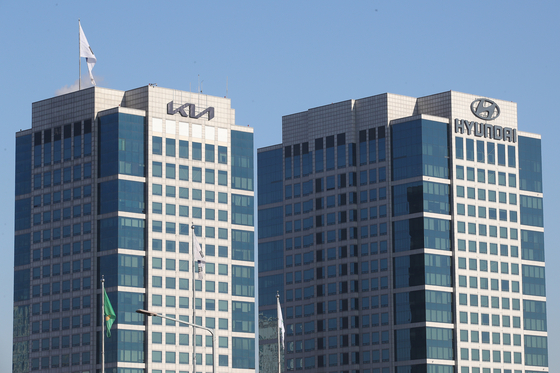![A view of the headquarters of Hyundai Motor Group in Yangjae-dong, Seocho-gu, Seoul. [뉴스1]](https://i0.wp.com/pds.joins.com/news/component/htmlphoto_mmdata/202103/11/8ab29503-2f6c-4118-adcc-344aa0c8f58c.jpg?w=560&ssl=1)
A view of the headquarters of Hyundai Motor Group in Yangjae-dong, Seocho-gu, Seoul. [뉴스1]
It is known that Hyundai Motor, which is targeting the eco-friendly car market in China, will install the battery of BYD, a Chinese company, in Chinese car models. Hyundai Motor Company had already decided to install Chinese CATL batteries in electric vehicles to be produced in China last year. This is a measure following the Chinese government subsidizing only electric vehicles equipped with batteries produced in China from 2016.
BYD promotes supply to Hyundai Motors from 2022
According to the business world on the 11th, Hyundai Motor Company’s Chinese subsidiary is conducting technical collaboration with BYD to obtain batteries. BYD has already established a dedicated department for Hyundai Motors and proposed a plan to supply a new product called’blade battery’ (pictured) to Hyundai from 2022. Foodie Battery, a subsidiary of BYD, is currently building a 20 gigawatt hour (GWh) battery plant with an investment of 10 billion yuan (about 1.7 trillion won) in Chongqing, China. Hyundai Motor Company has a tea plant in Chongqing that can produce 300,000 units per year.
![Chinese company BYD's new product,'Blade Battery'. [사진 BYD]](https://i0.wp.com/pds.joins.com/news/component/htmlphoto_mmdata/202103/11/e6a3e06a-5e8f-4cc7-8dbf-bdd3531522bd.jpg?w=560&ssl=1)
Chinese company BYD’s new product,’Blade Battery’. [사진 BYD]
BYD’s blade battery is assembled by inserting several thin and long battery cells like a blade to make a battery pack. Compared to the existing electric vehicle battery, it is much flatter. It is known that it is designed in a flat shape and does not catch fire even if it is photographed with a nail. In particular, it is suitable for increasing battery capacity as it enables a’cell-to-pack’ that allows you to make a battery pack directly from a battery cell, which is a basic unit, without going through a battery module. BYD is also known to have announced its intention to convert part of the Chongqing battery factory line to Hyundai Motor Company if Hyundai Motor Company wishes.
![BYD's electric car'Han EV' exhibited at the Beijing Motor Show in China last September. [연합뉴스]](https://i0.wp.com/pds.joins.com/news/component/htmlphoto_mmdata/202103/11/2341e3f6-37da-46f6-8691-01b7010cce01.jpg?w=560&ssl=1)
BYD’s electric car’Han EV’, which was exhibited at the Beijing Motor Show in China in September last year. [연합뉴스]
BYD’s electric car’Han’ equipped with a blade battery has a mileage of 605 km (based on European fuel economy measurement method) per charge. If the packaging space is reduced with cell-to-pack technology, more battery cells can be added to the remaining space to increase the mileage of electric vehicles. Domestic companies such as LG Energy Solution, Samsung SDI, and SK Innovation make several battery cells into battery modules, and then assemble the battery modules into battery packs.
Subsidies are provided only for electric vehicles equipped with Chinese and Chinese batteries.
For Hyundai, to receive subsidies for electric vehicles from the Chinese government, it must use locally produced batteries. This is because the Chinese government has been subsidizing only electric vehicles with batteries produced in their country since 2016. Hyundai Motor Group has recently been increasing the number of local electric vehicle models in China. The Avante-class electric car will be launched in China this month, and the Ioniq 5 will also be sold in China as early as July. Last year, Hyundai Motors’ Chinese subsidiary, Beijing Hyundai, recorded an operating loss of 1.15 trillion won, and Dongfeng Yu and Kia posted an operating loss of 649.9 billion won.
Reporter Kim Young-min [email protected]
![]()
